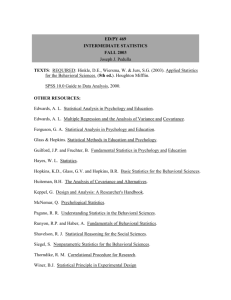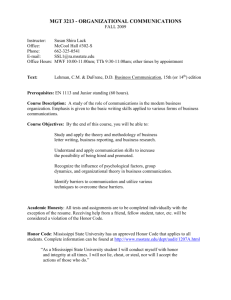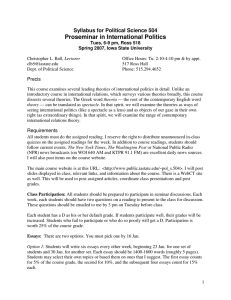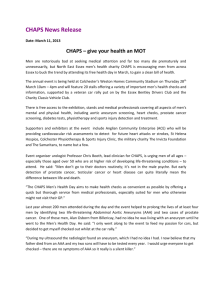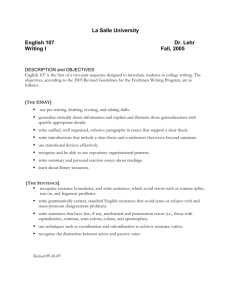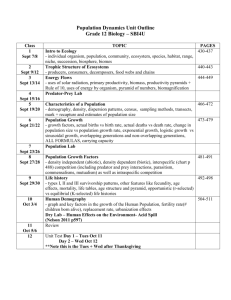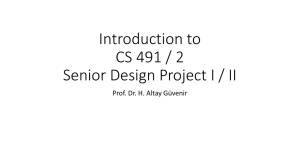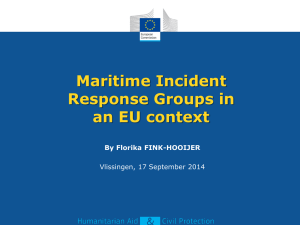BoyerSyllabus2005 - Pardee Center for International Futures
advertisement
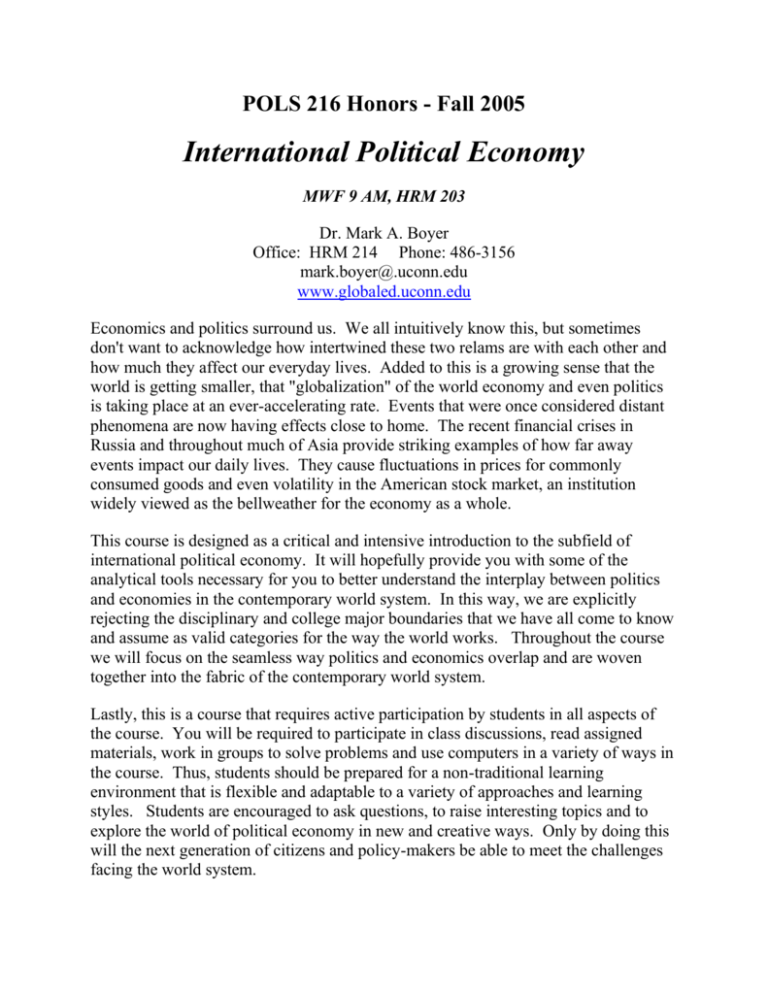
POLS 216 Honors - Fall 2005 International Political Economy MWF 9 AM, HRM 203 Dr. Mark A. Boyer Office: HRM 214 Phone: 486-3156 mark.boyer@.uconn.edu www.globaled.uconn.edu Economics and politics surround us. We all intuitively know this, but sometimes don't want to acknowledge how intertwined these two relams are with each other and how much they affect our everyday lives. Added to this is a growing sense that the world is getting smaller, that "globalization" of the world economy and even politics is taking place at an ever-accelerating rate. Events that were once considered distant phenomena are now having effects close to home. The recent financial crises in Russia and throughout much of Asia provide striking examples of how far away events impact our daily lives. They cause fluctuations in prices for commonly consumed goods and even volatility in the American stock market, an institution widely viewed as the bellweather for the economy as a whole. This course is designed as a critical and intensive introduction to the subfield of international political economy. It will hopefully provide you with some of the analytical tools necessary for you to better understand the interplay between politics and economies in the contemporary world system. In this way, we are explicitly rejecting the disciplinary and college major boundaries that we have all come to know and assume as valid categories for the way the world works. Throughout the course we will focus on the seamless way politics and economics overlap and are woven together into the fabric of the contemporary world system. Lastly, this is a course that requires active participation by students in all aspects of the course. You will be required to participate in class discussions, read assigned materials, work in groups to solve problems and use computers in a variety of ways in the course. Thus, students should be prepared for a non-traditional learning environment that is flexible and adaptable to a variety of approaches and learning styles. Students are encouraged to ask questions, to raise interesting topics and to explore the world of political economy in new and creative ways. Only by doing this will the next generation of citizens and policy-makers be able to meet the challenges facing the world system. As an honors course, I hope and expect that the course will be even more interactive than my regular courses. I hope to lecture less, entertain questions more, explore interesting avenues for research and challenge all of you to think critically and analytically. I also expect that I will be challenged by you and that there will be times when I will not know the answers to the questions you ask. When that happens, we'll work to find the answers one way or another. Grading and Requirements: % of total grade Midterm exam 20% Final exam 20% Reflection Papers (3) 20% Class Participation 10% IFs Group Project 25% (group grade) Baldicer Participation 5% Required Readings Hughes, Barry B. (1999) International Futures: Choices in the Face of Uncertainty, 3rd ed. Boulder: Westview Press. Spero, Joan E. and Jeffrey A. Hart. (2003) The Politics of International Economic Relations, 6th ed. Belmont, CA: Wadsworth/Thomson (S&H). Broad, Robin. (2002) Global Backlash: Citizen Initatives for a Just World Economy. Boulder, CO: Rowman and Littlefield. Class Schedule Aug. 29 and 31 - Introduction and Perspectives - S&H - Chaps. 1, 5 Go to www.lib.uconn.edu/~mboyer/concepts216.html for a summary of theoretical approaches we will discuss. Sept. 2 - Mercantilism - Hamilton and Gilpin articles in GlobalEd Office ***NOTE: The readings for the next four sessions will be on "in-house" reserve in HRM 200 (GlobalEd Office). These articles are left for "honor system" use and should not leave HRM 200 for more than one hour for copying purposes. All these articles, except for the Denemark piece, are taken from George T. Crane and Abla Arawi, eds. (1997) The Theoretical Evolution of International Political Economy: A Reader, New York: Oxford University Press.*** Sept. 7 - Liberalism - Smith, Ricardo, Keohane and Nye articles Sept. 9 - Marxism and World Systems - Marx, Lenin, and Denemark articles Sept. 12 and 14 - Integrating Theory with Reality - Broad, Parts I and II, pp.13-116, Sept. 16, 19 and 21 - The Global Monetary System: Its Challenges and Problems S&H Chaps. 2, 6 Paper #1 Due Sept. 19 Sept. 23, 26, 28 - The Global Trading System - S&H Chaps. 3, 7 Sept. 30 - Other Perspectives on Trade - Broad, Part III, pp. 117-172. Oct. 3, 5 and 7 - Baldicer Simulation Paper # 2 Due October 5th Oct. 10, 12, and 14 - Global Investment and Financial Flows - S&H Chaps. 4, 8 October 17 and 19 - Broad, Part IV, pp. 173-242 October 21 - Midterm Exam October 24 - The Changing Nature of IPE - Broad October 26 and 28 - Thinking About Our Future - Hughes, Chaps. 1-3 Paper #3 Due October 28th October 31, Nov. 2 and 4 - Modelling Our Future - Hughes, Chaps. 4-8 November 7, 9, and 11 - In-Class Group Work Days November 14, 16 and 18 Thanksgiving Recess November 19 to 27 November 28, 30 and Dec. 2 - Group Presentations in Class December 5, 7 and 9 - Tying it All Together: Broad Final Exam Period as Scheduled by the Registrar

